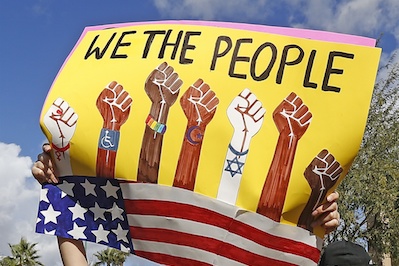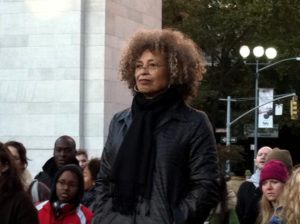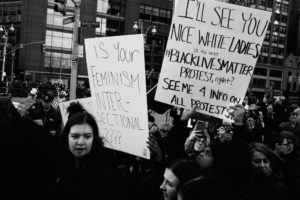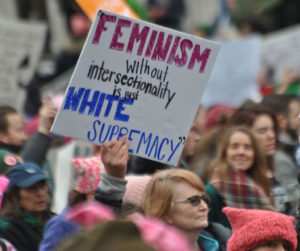Women Worldwide Will Strike Against Trump on March 8
The goal is to mobilize populations against the president, his antisocial policies and the “ongoing neoliberal attack on social provision and labor rights.” A demonstrator at the women’s march in Phoenix on Jan. 21. (Ross D. Franklin / AP)
A demonstrator at the women’s march in Phoenix on Jan. 21. (Ross D. Franklin / AP)
A demonstrator at the women’s march in Phoenix on Jan. 21. (Ross D. Franklin / AP)
On March 8, women worldwide will reaffirm the power of the women’s marches of Jan. 21 by striking to mobilize populations against President Trump, his antisocial policies and the “ongoing neoliberal attack on social provision and labor rights.”
On Monday, The Guardian published a call for women everywhere to participate in a strike led by “feminist groups from around 30 countries.” The authors of the call are academics and activists Linda Martín Alcoff, Cinzia Arruzza, Tithi Bhattacharya, Nancy Fraser, Barbara Ransby, Keeanga-Yamahtta Taylor, Rasmea Yousef Odeh and Angela Davis.
“In our view, it is not enough to oppose Trump and his aggressively misogynistic, homophobic, transphobic and racist policies,” the women wrote. “Lean-in feminism and other variants of corporate feminism have failed the overwhelming majority of us, who do not have access to individual self-promotion and advancement and whose conditions of life can be improved only through policies that defend social reproduction, secure reproductive justice and guarantee labor rights. As we see it, the new wave of women’s mobilization must address all these concerns in a frontal way. It must be a feminism for the 99%.”
The kind of feminism we seek is already emerging internationally, in struggles across the globe: from the women’s strike in Poland against the abortion ban to the women’s strikes and marches in Latin America against male violence; from the vast women’s demonstration of last November in Italy to the protests and the women’s strike in defense of reproductive rights in South Korea and Ireland.
What is striking about these mobilizations is that several of them combined struggles against male violence with opposition to the casualization of labor and wage inequality, while also opposing homophobia, transphobia and xenophobic immigration policies. Together, they herald a new international feminist movement with an expanded agenda: at once anti-racist, anti-imperialist, anti-heterosexist and anti-neoliberal. …
The idea is to mobilize women, including trans women, and all who support them in an international day of struggle – a day of striking, marching, blocking roads, bridges, and squares, abstaining from domestic, care and sex work, boycotting, calling out misogynistic politicians and companies, striking in educational institutions. These actions are aimed at making visible the needs and aspirations of those whom lean-in feminism ignored: women in the formal labor market, women working in the sphere of social reproduction and care, and unemployed and precarious working women.
“The women’s marches of 21 January have shown that in the United States, too, a new feminist movement may be in the making,” they continue. “It is important not to lose momentum.”
—Posted by Alexander Reed Kelly
Your support matters…Independent journalism is under threat and overshadowed by heavily funded mainstream media.
You can help level the playing field. Become a member.
Your tax-deductible contribution keeps us digging beneath the headlines to give you thought-provoking, investigative reporting and analysis that unearths what's really happening- without compromise.
Give today to support our courageous, independent journalists.





You need to be a supporter to comment.
There are currently no responses to this article.
Be the first to respond.